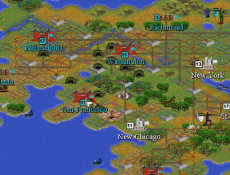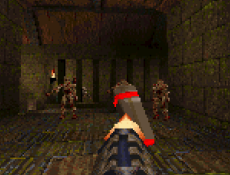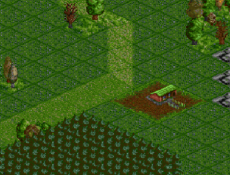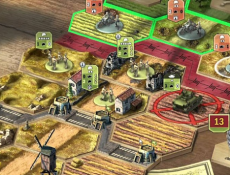Civilization II invites players into a complex world of strategic empire-building, where each decision shapes the arc of a civilization’s rise or fall. This sequel deepens the experience of its predecessor with expanded features that allow for more nuanced strategies and more complex interactions. Players begin in the ancient world with a single nomadic tribe and over the course of many millennia, develop into a full-fledged civilization. Through a combination of exploration, research, diplomacy, and warfare, players extend their influence across a map teeming with resources, rival cities, and untouched wilderness.


Civilization II

Advertisement
Advertisement
Civilization II invites players into a complex world of strategic empire-building, where each decision shapes the arc of a civilization’s rise or fall. This sequel deepens the experience of its predecessor with expanded features that allow for more nuanced strategies and more complex interactions. Players begin in the ancient world with a single nomadic tribe and over the course of many millennia, develop into a full-fledged civilization. Through a combination of exploration, research, diplomacy, and warfare, players extend their influence across a map teeming with resources, rival cities, and untouched wilderness.
The game’s depth is reflected in its sophisticated system for technological development, where players must choose their research paths wisely to suit their civilization’s needs and strategic goals. From the invention of the wheel to the development of nuclear power, technological advancements open up new possibilities for economic growth, military equipment, and cultural influence. The choices made here influence the capabilities of a civilization and its philosophy and governance, impacting everything from population happiness to military efficiency.
A Living World Full of Strategic Opportunities
Civilization II is renowned for creating a living, breathing world where every tile on the map matters. The geography of a player’s starting location can drastically affect their strategic decisions, from the lush, resource-rich landscapes that may foster peaceful expansion to barren, strategic locales that necessitate aggressive military tactics. Additionally, the game’s AI is designed to present a realistic and challenging set of rival leaders, each with their unique agendas and capable of forming shifting alliances, making diplomatic relations as complex as real-world international politics. This dynamic environment, combined with the unpredictable nature of multiplayer engagements, ensures that no two playthroughs are ever the same, offering endless replayability and a multitude of paths to victory.



















